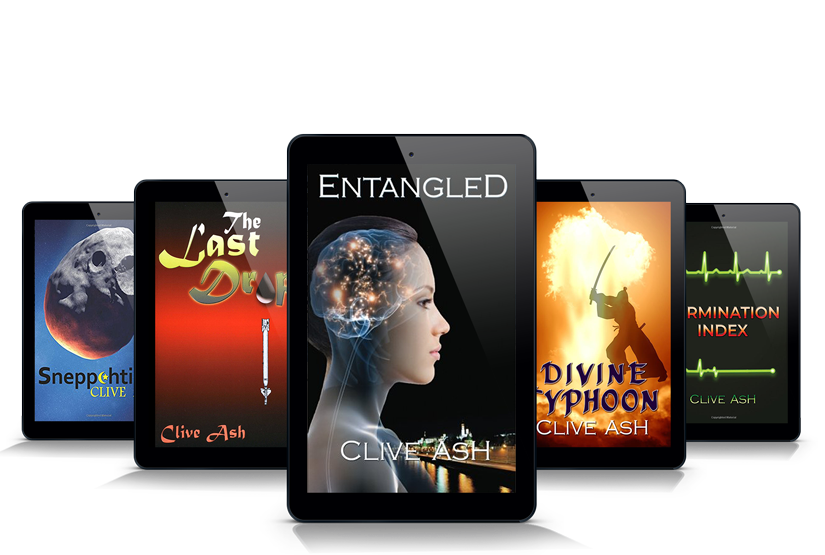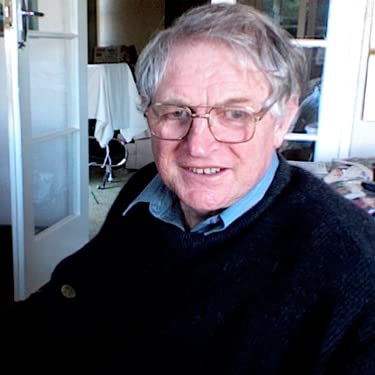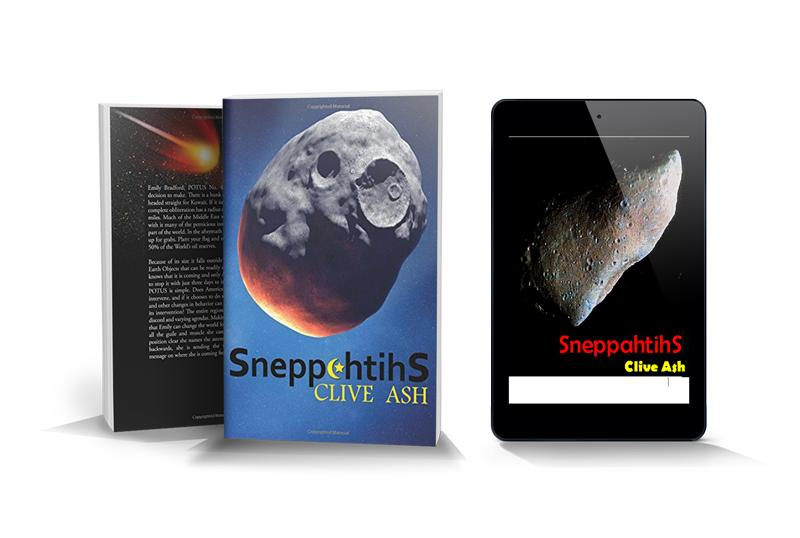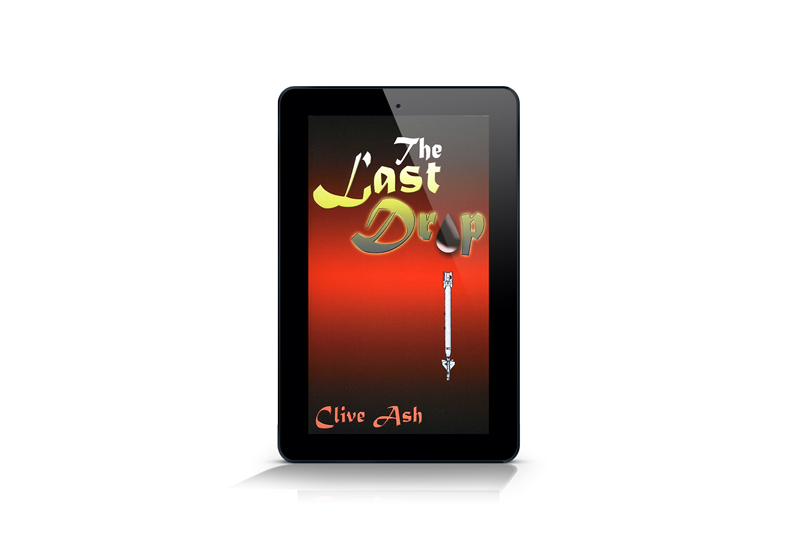

The World As The Author Sees It...
Greetings and welcome to the Web page for Clive Ash Publishing. As an author I am dedicated to writing thrillers that are both controversial and thought provoking. As a human being I am appalled at the greed, hubris and hypocritical self-righteousness that motivate our species. Consequently, assaults against human folly are a recurring theme in my writing. I believe it is essential that we quickly recognize and change the destructive and selfish manner in which we deal with each other and the very fragile environment we live in. Our planet itself is far from fragile. It has repeatedly survived cataclysmic events as a consequence of which millions of species have disappeared – only to make room for millions of new ones. Mankind is just one of those species that has been granted the privilege of being temporary tenants of the land. As we continue to destroy the very fragile environment essential for our existence, Earth will remain indifferent to our folly, and in the aftermath of our demise provide opportunity for some new species to fill the gap. We have only decades to save ourselves, the Earth has millions of years to replace us.
Clive Ash Bio
Clive Ash has traveled extensively, often to remote locations ranging from the blazing heat of the Sahara to the equally fragile and bitterly cold world inside the Arctic Circle. He has an adventurous bent that has taken him flying, skydiving, kayaking, and sailing. He also holds a Third Degree Black Belt in martial arts. These various experiences allow him to bring a firsthand knowledge to his descriptions of the many locations visited in his novels, as also the antics of his characters. He has tempted fate on numerous occasions, and often come close to losing. He has quite literally seen his life flash before his eyes and lived to tell about it. Through it all he has learned to stay centered in the face of adversity and opportunity. Along the way he somehow found time to get married and get a Ph.D., both of which experiences have taught him how much he still has to learn. He has over 60 publications and patents to his credit, and has an astute appreciation for how little separates the profound from the mundane. His professed genre is the scientific thriller, but he is also an unabashed romantic at heart, and that mysterious condition called love keeps creeping into his writing. “Entangled,” his latest title, being the perfect example of a romantic thriller. That said, he is working on a new novel that promises to deliver a garish expose of human culpability. He writes to give substance to the ideas in his head.
OCCAM’s Taser as epiphany
OCCAM’S RAZOR – One should not increase, beyond what is necessary, the number of entities required to explain anything. (Pluralitas non est ponenda sine neccesitate.)
OCCAM’S TAZER – All unwarranted neural activity will return to zap you.
Much use has been made of the allegorical razor most associated with Occam, though variations on that theme date back to Aristotle. Quite often the need for parsimonious simplicity has been used effectively by attackers and defenders alike of the same premise. With that parsimonious introduction behind us, let us look at the issue from a different perspective. Five hundred years after Occam another English clergyman and philosopher, Thomas Bayes, introduced a twist to the concept of probability by injecting prior sentiment into the interpretation of a probability. And it seems that is exactly how the brain works. The likelihood of defining an exact certainty for any event can easily overwhelm the brain’s capabilities; instead, it reverts to defining a probability for any eventuality, and then acts in accordance with that probabilistic interpretation. Where Bayesian probability enters the picture is in the fact that all that has gone before becomes part of this interpretation of a future probability. It appears that one never truly discards all the previous bad or unnecessary assumptions and presumptions that have brought us to where we are, and which continue to play a role, even if unconsciously so, in the decision making process. Especially, one suspects, in the more contentious matters like religion, or philosophy, or romance. All that unwarranted neural activity that was part of some past definition is hovering back there, idling like some supercharged capacitor just waiting to discharge when shorted out by an uncluttered revelation or fundamental realization, thus giving rise to what we so quaintly refer to as an epiphany.
Reviews on Amazon.com
From the United States

Reviewed in the United States 🇺🇸 on July 31, 2017
This fascinating book involves, among other profound ideas, a metaphor about quantum entanglement's resembling the interaction of Sally Nash and the book's hero, Pandey. Those of us who have been fortunate to fall deeply in love know that whether we stay together or are separated, we are changed forever, affected by our having met and perhaps by a continuing ethereal connection, as Frost's smitten lover wrote about Eve: "never again would birds' song be the same."

Reviewed in the United States 🇺🇸 on March 30, 2012
The genre of "The last drop" is what I call future history, but unfortunately the author has buried himself in a top-heavy structure. Ash introduces a brilliant problem, then another, then another, then another and so on, all disconnected. He has starts for maybe 8 books and we are half-way through the book before we meet the hero. I asked myself, how could he possibly resolve all this? The answer: he couldn't.
With terrorism everywhere, the Israeli cabinet meets. What do they discuss? What is going on? What are our options? What must we do? No - it is largely Arab/Jew relationships. The President of the US decides to retaliate for the blowing up of three airlines by bombing Iran back to the stone age. The evidence: the terrorists included three Pakistanis and a Saudi, and the fact that Iran is not using US banks to avoid sanctions. At this stage, probably even Mr Ash conceded this is a bit thin, so at about 55% through the book, a new problem emerges, namely Iran has had a nuclear bomb under a US city for a year. Oops, we have 18 hrs to neutralize this, which is done clinically in a few pages. If it were that easy to neutralize, why leave it there for a year? So far, the hero has yet to get involved.
Which gets me to why I dislike this book. Apart from making speeches, most of it is telling, not showing. There are scenes that would make excellent material for an arms sales brochure, but I want a story, with tension, characters doing something, which they don't until one brief example towards the end of the book, and one or two examples of setting up the terrorist attack. What is frustrating is that these small examples show the author can write, but he has become buried in "world problems" and the story barely has space to emerge.





